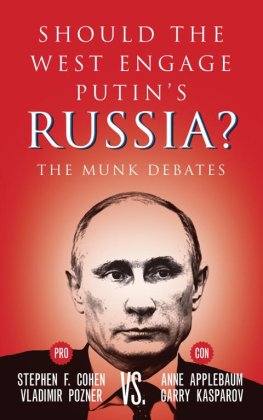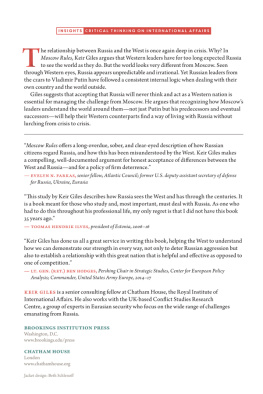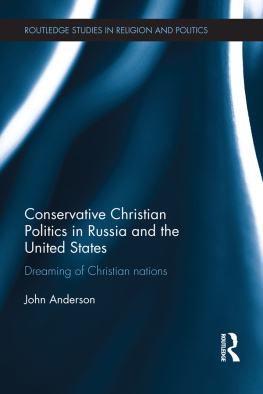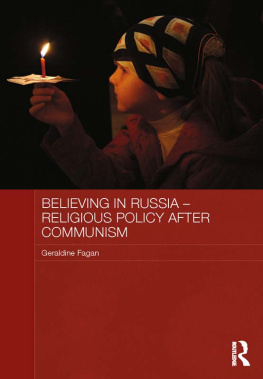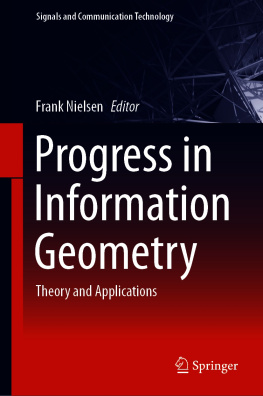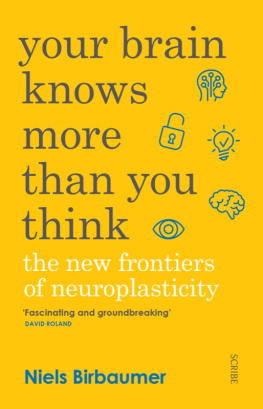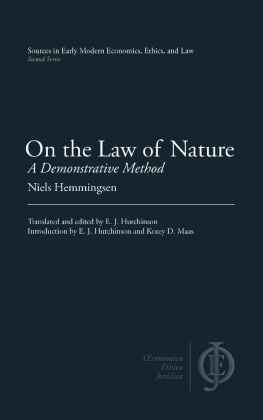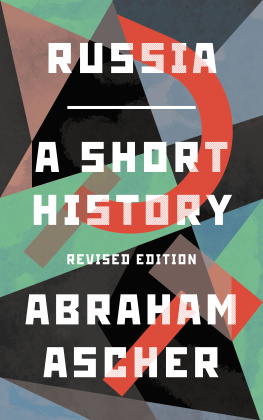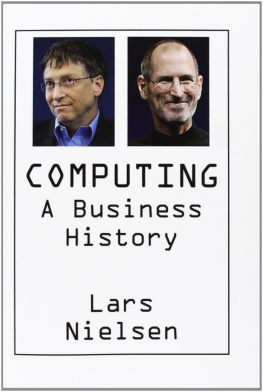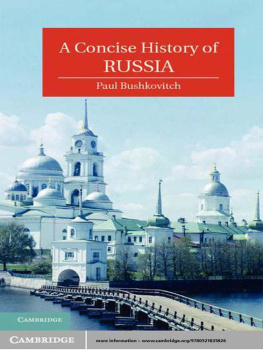First published 1998 by Westview Press
Published 2018 by Routledge
711 Third Avenue, New York, NY 10017, USA
2 Park Square, Milton Park, Abingdon, Oxon OX14 4RN
Routledge is an imprint of the Taylor & Francis Group, an informa business
Copyright 1994 by Taylor & Francis
All rights reserved. No part of this book may be reprinted or reproduced or utilised in any form or by any electronic, mechanical, or other means, now known or hereafter invented, including photocopying and recording, or in any information storage or retrieval system, without permission in writing from the publishers.
Notice:
Product or corporate names may be trademarks or registered trademarks, and are used only for identification and explanation without intent to infringe.
Library of Congress Cataloging-in-Publication Data
Christianity after communism: social, political, and cultural
struggle in Russia / edited by Niels C. Nielsen, Jr.
p. cm.
Includes bibliographical references.
ISBN 0-8133-6713-1
1. Russia (Federation)Church history20th century.
2. ChristianityRussia (Federation)20th century.
3. ChristianityRussia (Federation)Forecasting. I. Nielsen,
Niels Christian, 1921
BR936.C48 1994
274.7'0829dc20
94-29700
CIP
ISBN 13: 978-0-8133-6713-2 (pbk)
This book consists of the presentations given at a conference on Religion in Eastern Europe After Communism, held in Houston, Texas, April 25-27,1993. The conference was sponsored by Reunion Institute, the Houston Graduate School of Theology, the Institute of Religion, the program in religion at the University of Houston and the Wessendorff Foundation. The American participants are specialists in Slavic studies in the United States. Three lecturers, Fathers Janusz A. Ihnatowicz (Roman Catholic), Vladimir Ivanov (Orthodox), and Dr. Alexander Zaichenko (Protestant) have taught in Russia. The English researcher, Dr. Philip Walters, is director of Keston Research in Oxford, England, at an institute which reported on religion in Eastern Europe for decades in the communist period.
The topic of the conference was not the past but the future: What has happened to religion since the demise of communism in the former USSR? This is the question addressed by our authors. All of our author-participants share the conviction that something new and of crucial significance for religious life has happened and is happening in Russia. Too little information is available about it in English. With the demise of communist ideology and its atheistic propaganda campaigns, religion now has a more open role to play in social and political, as well as personal, life. Of course, neither in the past nor in the present is its influence simply positive. Today, old conflicts have surfacedoften in bitterness and religious intolerance as state-sponsored suppression of the churches has ceased. Unshackled from Marxist rule, nationalism has proved highly divisive and has led to violencemost terribly in Yugoslavia. Paul Mojzes' chapter about Yugoslavia, the only one describing the conflicts engendered by the end of communism outside the former USSR included in our volume, makes this point.
It was considered of first importance by the conference organizers that presentations come from different points of view within the Christian spectrum of churches and beliefs. The analysis presented in this book centers on Russia (with one exception, Yugoslavia) and includes Orthodox, Roman Catholic, and Protestant interpretation. Also important are the rapidly changing situations in the non-Christian areas of the former USSR. With the end of communist persecution, Islam and Buddhism are reasserting their presence along with shamanism, and there is missionary activity by Hare Krishna, a form of Hinduism. There are also interesting and significant new developments in other areas of Eastern Europe, for example, former satellite countries such as Bulgaria, Poland, and East Germany. That these subjects were not included in this volume does not mean that they were considered unimportant. They simply were beyond the scope of the conference and its necessary limitations of size and time.
Because of their topics as well as the respective authors' interests, the chapters of this volume differ in style arid approach. Some presentations are descriptive and analytic. Others are more prescriptive and theological. This variety itself should lead the reader to an individual evaluation of the present religious situation. Suddenly, church leaders as well as individual believers found that their situation was very radically changed. There was new freedom for activity but also an acute lack of funds. Ideologically, old disputes have flared in unexpected ways.
The evaluations of Father Ivanov and Dr. Alexander Zaichenko, both from Moscow, give very divergent judgments about present religious developments in their country. Ivanov, a church historian, reflects as an Orthodox priest faithful to the Moscow Patriarch. Zaichenko, a high-ranking economist who continues to write in his field for international journals, earlier was among President Gorbachev's advisers. He is one of the few intellectuals active as a free churchman. After he finally secured a Bible in 1985, he was baptized in 1986. Like Ivanov, Zaichenko's point of view is that of an informant giving his own perceptions of the situation. For the audience at the time of the conference, his comments were particularly engaging. Historically, it is evident that Protestant sectarianism has provided islands of ethical consciousness in the past in Russia. Zaichenko's hope that privatization will lead to millions of individual proprietors developing a religious and ethical consciousness seems an optimistic projection in view of the present upsurge in Mafia-like profiteering.
The translations of Patriarch Aleksi's address to a group of American rabbis during a visit to New York City and the material from Metropolitan Ioann of St. Petersburg are included because they bear on the growth of anti-Semitism in Russia today. They are diametrically opposed to each other in viewpoint, one informed and tolerant, the other obscurantist and dangerous. Although the Patriarch has restricted the Metropolitan's right to speak publicly for the Orthodox Church, the Metropolitan, in a show of unity, did not at once, in reply, openly attack the Patriarch.
Both American specialists, Professors Steeves and Daniel, provide important information on contemporary developments. Steeves tells of the efforts to organize Christian political parties, narrating the difficulties of sustaining any clearly identified Christian consensus and influence. Daniel highlights not only the vitality of the new religious press which has developed under glasnost' but also the variety of viewpoints among Christians writing for it as well. Philip Walters of Keston Research at Oxford, England, enumerates a number of positive developments. His information, like that of Professor Pankhurst who is a sociologist, comes from extensive recent travel in the region as well as a host of important contacts from before and after the end of persecution.
The only chapter included in the volume whose author was not present at the conference is that of Dennis J. Dunn; he was in China at the time of the meeting. Dunn's wide historical knowledge of both political and religious conditions in Russia has been reflected over the years in the range of his publications. The two chapters by seminary educators, Walter Sawatsky and Father Ihnatowicz, come from contrasting confessional points of view. Ihnatowicz recently taught at the new Roman Catholic seminary in Moscow. Sawatsky's account of conflicting visions in theological education, also from firsthand contact and travel, reflects significantly on the future as well as the past. His counsel was especially valuable in arrangements for the conference; special thanks are due to him. Paul Mojzes, editor of Occasional Papers on Religion in Eastern Europe, has long researched developments in Eastern Europe. His chapter provides information for the reader's further reflection on the contrasting pattern of events in the former Yugoslavia and the former USSR.


